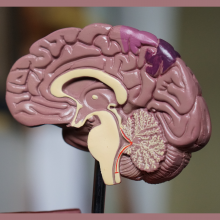
Member Prices
Deep brain stimulation (DBS) is emerging as a potential intervention for patients with highly treatment-resistant depression (TRD). Early, open-label studies supported the safety and potential efficacy of DBS for TRD but later randomized, controlled trials have yielded mixed results. This presentation reviews the history of DBS for TRD, with a specific focus on DBS of the subcallosal cingulate (SCC) – the technique that has been most studied to date. The results of key trials are critically evaluated, and recent research is presented that provides a potential direction for further study of this promising intervention.
Learning Objectives
At the end of this session, participants will be able to:
- Describe how DBS fits within a unique paradigm for treating neuropsychiatric disorders
- Critically evaluate the existing literature on DBS as a treatment for TRD
- Discuss how recent research findings may indicate a path for future evaluation for DBS as a intervention for TRD and other neuropsychiatric disorders.











